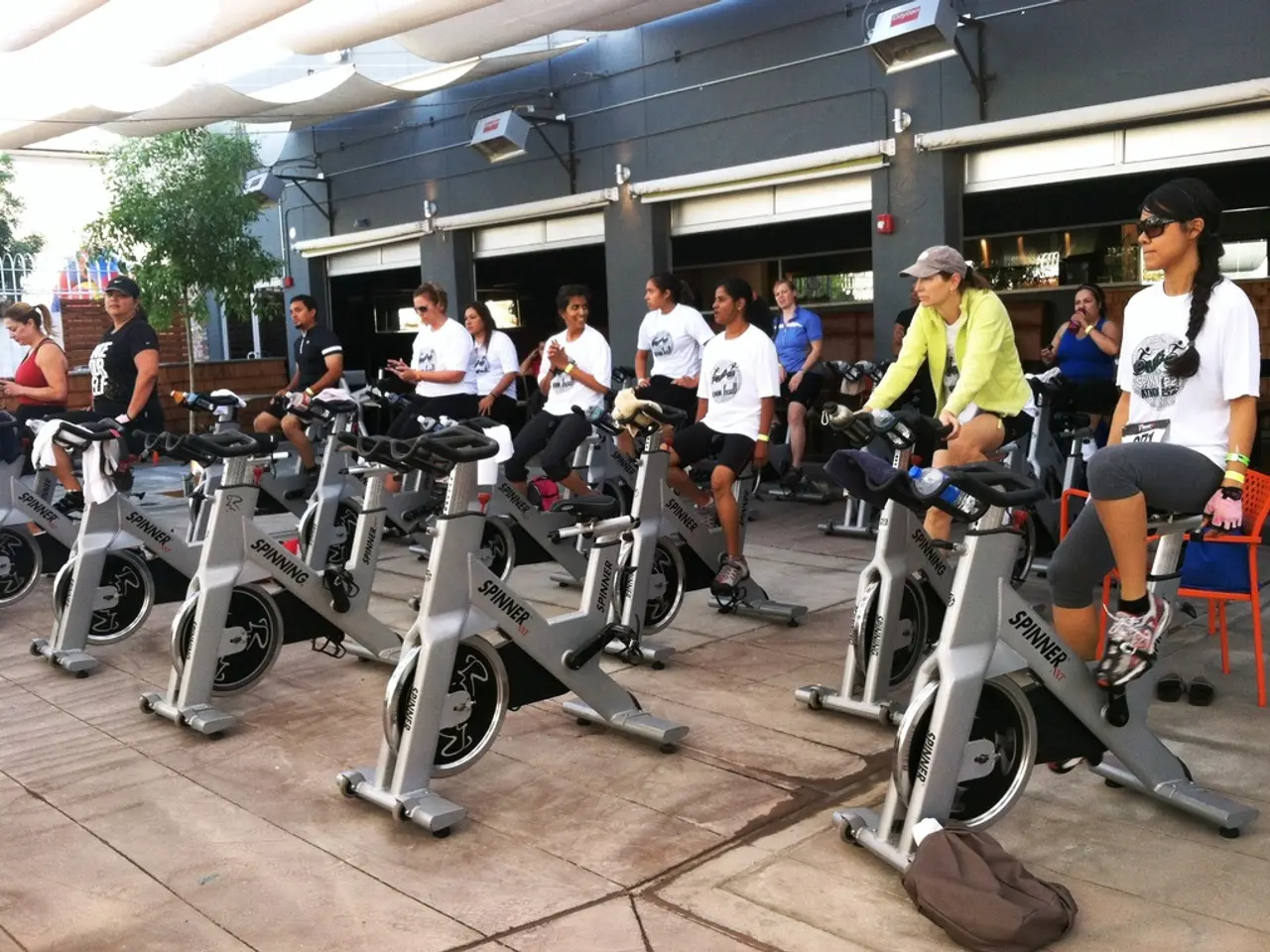Recommended Health Goals: A Look at the Science Behind Steps Targets and Sleep Hours
In the realm of health and wellness, maintaining a balanced lifestyle is key. Here are some insights from experts on exercise, alcohol consumption, and sleep, backed by research and recommendations from various UK health organisations.
Exercise plays a significant role in maintaining good health. The National Health Service (NHS) advises UK adults to aim for 150 minutes of moderate exercise or 75 minutes of vigorous exercise each week. This can include activities like brisk walking, cycling, or swimming. According to research, regular exercise can lower the risk of death by 11-15% compared to those who do no exercise, and reduce the risk of heart attack by 20%.
When it comes to alcohol, moderation is crucial. The UK guidelines suggest adults should not exceed 14 units of alcohol a week, spread over a period of three days or more. Drinking in moderation can help reduce the risk of various health issues, including seven common cancers. In fact, Sir Ian Gilmore, chair of Alcohol Health Alliance UK, states that sticking to a maximum of 14 units a week can lower the risk of alcohol-related disease to one in 100 or less.
Sleep is another essential component of a healthy lifestyle. Seven to eight hours of sleep per night is the magic number for adults, ensuring the brain has the appropriate time to function healthily. Eliminating electronics at least one hour before bedtime can also improve sleep quality, according to Dr Nilong Vyas.
As for diet, Dr Susan Fairweather-Tait warns against obsessing over Recommended Dietary Allowances (RDAs). Instead, she emphasises the importance of eating a variety of foods for most people to meet their nutritional needs. Dr Sarah Berry agrees, suggesting that for most people, eating a variety of foods is likely to provide the necessary key nutrients needed for health.
It's worth noting that exceptions include pregnant women, vegans, and people with specific health conditions who should take their doctor's advice regarding supplements. If in doubt, Berry does not believe there is any harm in taking a standard dose multivitamin as an 'insurance' policy.
In terms of physical activity, vigorous activity is best for fitness, and it doesn't necessarily mean strenuous exercise. Dr Gavin Sandercock, a professor of sport, rehabilitation, and exercise sciences, states that these recommendations are based on four decades of research.
Lastly, regarding steps, the 10,000 steps target was a gimmick produced for the 1964 Tokyo Olympics by a pedometer company. Older adults don't necessarily need to do 10,000 steps to maintain their health; usually, 6,000 steps are enough to keep them out of things like frailty classifications. If you're trying to increase your walking, a pedometer can help, but it might not work for long. One 2013 study found that over a period of four weeks, a pedometer increased participants' walking more than being given walking goals in minutes, but after this time, walking times started to decrease again.
In conclusion, maintaining a balanced lifestyle through regular exercise, moderate alcohol consumption, and adequate sleep can significantly contribute to overall health and wellbeing. It's always a good idea to consult with healthcare professionals for personalised advice.
Read also:
- Understanding Hemorrhagic Gastroenteritis: Key Facts
- Stopping Osteoporosis Treatment: Timeline Considerations
- Tobacco industry's suggested changes on a legislative modification are disregarded by health journalists
- Expanded Community Health Involvement by CK Birla Hospitals, Jaipur, Maintained Through Consistent Outreach Programs Across Rajasthan








